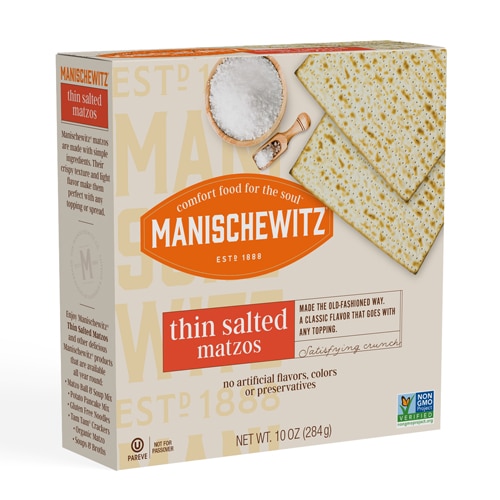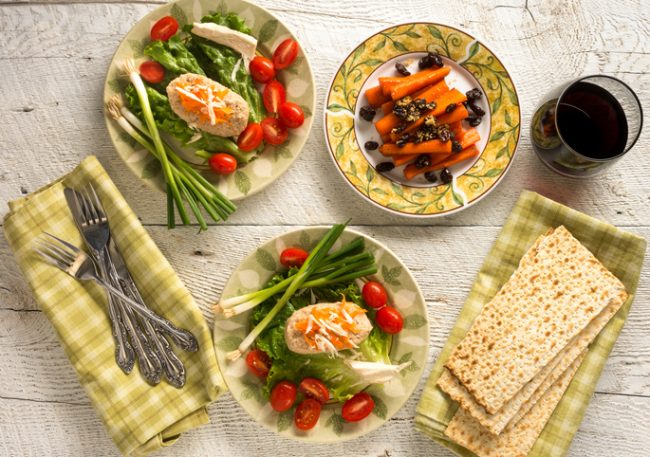Historically, kosher has been the province of practicing Jews who want to adhere to their faith’s strict dietary laws. But more and more people outside the Jewish faith are following kosher principles, including vegetarians, vegans and gluten-free devotees.
As a matter of fact, 80 percent of kosher food sales fall outside the traditional Jewish market, according to Food Business News, a trade publication. So, why are so many people — Jews and non-Jews — committed to kosher? The answer lies in what kosher represents.
OK Kosher Certification, a kosher certification agency, says kosher refers to a “set of intricate biblical laws that detail the types of food that a Jewish person may eat and the ways in which it may be prepared.” For a product to be certified as kosher, both the ingredients and the preparation process must comply with kosher standards.
Kosher is a Hebrew word meaning “fit,” “proper” or “correct.”
Carefully produced and inspected
In 2009, market research company Mintel reported that food quality led the reasons for people buying kosher products, with “general healthfulness” in the No. 2 spot and food safety at No. 3. Just 14 percent of people surveyed said they bought kosher food because they followed kosher religious rules. This helps explain the appeal of kosher to vegetarians, vegans, gluten-free devotees and other health-conscious consumers.
“Kosher food has gained the reputation of being more carefully produced and thoroughly inspected than non-kosher food,” says Marcia Mogelonsky, a food and beverage analyst at Mintel.
As described by OK Kosher Certification, kosher foods are put into three carts, if you will: meat, dairy and pareve.
Meat
Kosher meat must come from an animal that chews its cud and has split hooves. Cows, goats and sheep are kosher; pigs and rabbits are not.
Meanwhile, kosher fowl include domesticated species of chickens, Cornish hens, ducks, geese and turkeys, but exclude all “predatory and scavenger” birds.
Here are some other restrictions regarding kosher meat, according to OK Kosher Certification:
- Animal and fowl must be slaughtered by someone specially trained in kosher slaughtering.
- The meat must be checked for blemishes by a specially trained kosher inspector, then soaked and salted to remove the blood.
- Portions of the animal or fowl that are allowed to be eaten must be prepared properly before cooking.
- All utensils used in slaughtering, cleaning, packaging and preparing must be kosher.
Dairy
Milk and milk products from a kosher animal — including milk, butter, yogurt, and all hard, soft and cream cheese — are kosher and dairy.
OK Kosher Certification says all ingredients of dairy products must be kosher and free of meat derivatives. Many non-kosher cheeses use stabilizers such as rennet or gelatin, which originate from animals. Kosher dairy products also must be produced and processed on kosher equipment.
Under kosher principles, meat and dairy products may not be cooked or eaten together, according to OK Kosher Certification.
Pareve
Pareve, or “neutral,” foods contain no meat or dairy. According to OK Kosher Certification, all fruits, grains, vegetables, water and minerals in their “natural state” are kosher and pareve. Eggs from kosher fowl also are pareve, as is fish.
Certain fruits, vegetables and grains must be checked for the presence of small insects and larvae, which are not kosher, OK Kosher Certification says. Also, eggs must be checked for the presence of blood spots, which are not kosher.
Other kosher rules
Kosher rules also affect other types of food, according to OK Kosher Certification:
- Kosher fish must have both fins and scales. The scales must be removable without damaging the skin of the fish.
- Most seafood, such as shellfish, lobster, clam and shark, is not kosher.
- Critters such as insects, rodents and most wild animals are not kosher.
- Even if every ingredient in wine is kosher, the wine is certified as kosher only if it was produced exclusively by Torah-observant Jews.
Where to find kosher products
Kosher products are sold at a variety of brick-and-mortar and online stores. To identify a kosher-endorsed product, look for any number of kosher symbols on the label.
“If all products with kosher symbols on them have been certified as kosher by someone, then why do we need so many symbols? Well, because some people only trust certain organizations to do a good job of making sure something is kosher,” according to My Jewish Learning.
Are kosher foods healthier?
While a kosher product carries a kosher symbol, it doesn’t necessarily symbolize healthfulness. As pointed out by the Toronto Star, kosher products include a variety of not-so-healthy snacks and sweets.
Dr. Andrew Weil, a specialist in alternative medicine, says on his website that although kosher food may be “somewhat safer than other supermarket choices,” it doesn’t necessarily mean that kosher food “is better for your general health than equivalent non-kosher food. Kosher salami and hot dogs are no better for you than non-kosher versions.”
However, TV personality Dr. Mehmet Oz, a cardiothoracic surgeon, notes that kosher food can give people peace of mind, since kosher companies must maintain records of where their ingredients come from and must show that their products contain nothing more than what appears on the label.
“So when you’re buying kosher, it can be argued that you know more accurately what’s in your food,” Oz says on Oprah.com.




